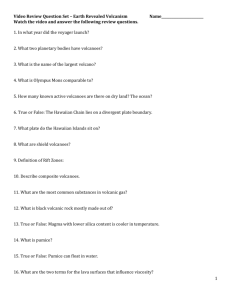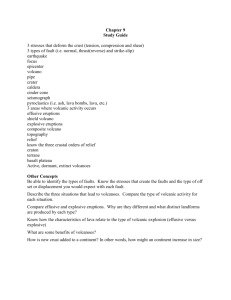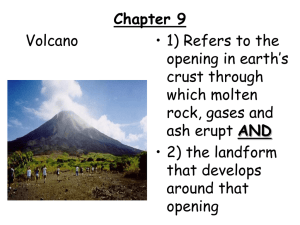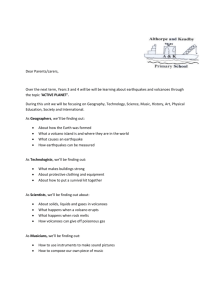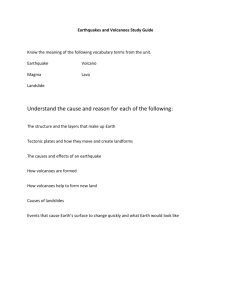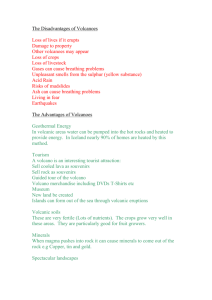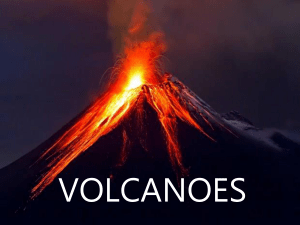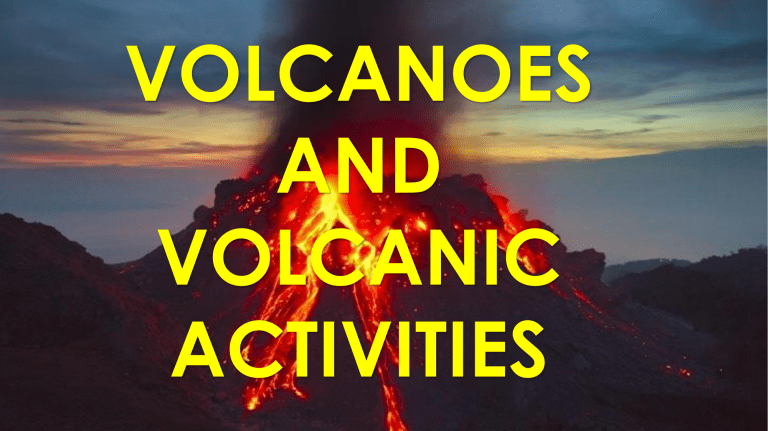
VOLCANOES AND VOLCANIC ACTIVITIES The Philippines is an archipelago of more than 7100 islands. Most of these islands are of volcanic origin. The Philippines lies between the Pacific and Eurasian Plates which makes it highly vulnerable to typhoons, floods, landslides, volcanic eruptions and earthquakes. The Pacific Ring of Fire that runs at the western rim of the Pacific Ocean is the most seismically active part of the earth, typified by a belt of active volcanoes and earthquake generators. Around 20 earthquakes are registered daily, though most are too weak to be felt. There are about 300 volcanoes in the Philippines. Twenty-two (22) of these are active while the larger percentage remains dormant as of the record. What is a Volcano? A volcano is an opening in the Earth’s crust where lava, pyroclasts and gases are ejected onto the surface during eruptions. Pyroclasts (or " tephra ') are any volcanic fragment that was hurled through the air by volcanic activity. Kinds of volcanoes according to shape Composite volcanoes are composed of alternating layers of lava and cinders (pyroclasts) Cinder cone is built entirely of loose fragments called cinders (pyroclasts and tephra) Shield volcano has a wide vase with gentle sloping sides. The cone is made up of purely lava that has poured out during eruption. Kinds of volcanoes according to activity Mayon Volcano Active Volcanoescurrently erupting or shows regular signs of activity Mt. Pinatubo Dormant Volcanohave currently erupted and then have entered a long period of inactivity. Mt. Batulao Extinct Volcanohave not shown signs of activity for a long time.
